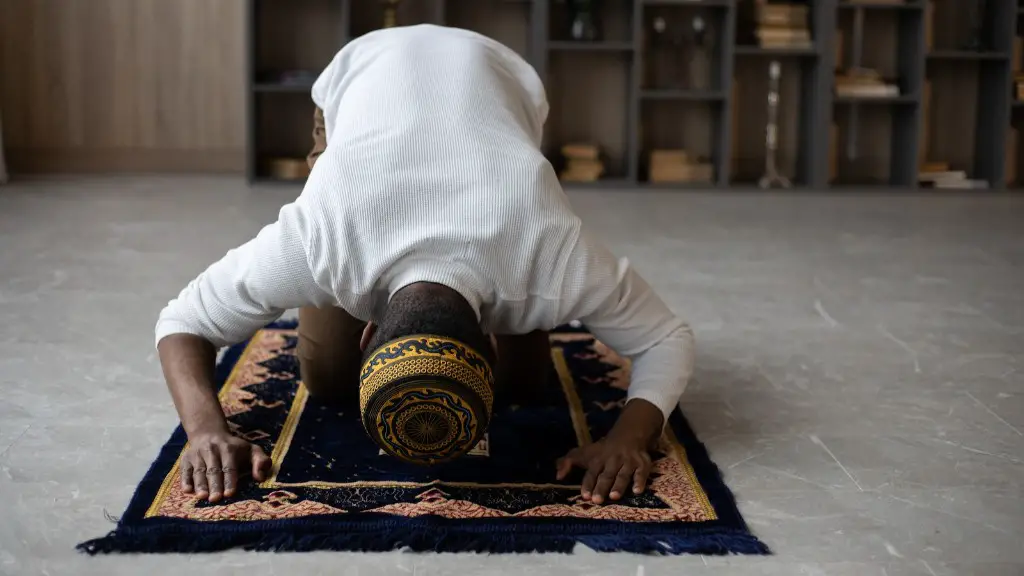Aqiqah is an Islamic practice that involves the sacrificial slaughter of an animal in order to celebrate the birth of a child. The word “aqiqah” means “to cut” in Arabic, and the practice is also sometimes referred to as a “aqiqah ceremony.” The animal that is sacrificed is typically a goat or sheep, although other animals may be used in some cases. The meat from the animal is then divided into three parts: one third is given to the poor and needy, one third is distributed among the child’s extended family and friends, and the final third is kept by the child’s parents.
Aqiqah is the Islamic practice of sacrificing an animal—usually a sheep—on the occasion of a child’s birth. The word aqiqah means “to shave” in Arabic, and the tradition includes shaving the child’s head. The aqiqah is a Sunnah, meaning it is a recommended practice of the Prophet Muhammad, but it is not obligatory. The purpose of the aqiqah is to give thanks to Allah for the gift of a new life and to celebrate the occasion with family and friends.
Why do Muslims do Aqiqah?
An aqiqah ceremony is a Muslim tradition that celebrates the birth of a child. It is usually done on the seventh day after the baby’s birth. The ceremony starts with an animal sacrifice and ends with a feast for all family members and friends.
At the Aqiqah ceremony, the parents give thanks to Allah for the gift of the baby. The shaving of the head symbolises the cleansing of the baby from impurities and the start of its life afresh in the presence of Allah. The baby is given a taste of honey to reflect the sweetness of the Qur’an.
What are the rules of Aqiqah
An Aqiqah is a celebration that is usually held on the seventh day after a baby is born. The Aqiqah ceremony is a celebration where the meat from the sacrificed animal is cooked and shared with family, friends and members of the community who are in need.
It is important to do aqeeqah for your child as it will protect them from death and calamities. This is according to Ja’far al-Sadiq, who is a reliable source. Therefore, make sure to do aqeeqah for your child as soon as they are born.
Is aqeeqah meat can be eaten by parents?
Aqiqah is the Islamic ceremony of sacrificing an animal to celebrate the birth of a child. The parents of the child are allowed to eat the meats They must not eat the meats by themselves alone however It is also sunnah to give the legs part of the aqiqah to the midwife who assists the childbirth process.
The conditions for the animals for Aqiqah are the same as the conditions for the animals for Qurbani. The animals to be slaughtered must be goats, sheep, cows or camels. For camels, it must be older than 6 years, for cows the age must be older than 3 years and for goats, it must be older than two years.
Is there a time limit for Aqiqah?
There is no specific time limit for performing Aqiqah and it can be done anytime, including during Qurban period. However, according to the sunnah, it is best to perform it on the 7th day of the child’s birth. If this is not possible, then it can be done on any subsequent 7 days after or before the child reaches puberty.
Aqiqah is sunnah and mustahab on the seventh day. If it could not be done on the seventh day, then on 14th day, and if not then on 21st day and if not then it can be done any time However it is better to perform it on seventh day ie if born on Friday, it should be done on Thursday.
How do you give a girl Aqiqah
It is considered good luck to sacrifice an animal for a baby girl. The animal is divided between the family members carrying out the sacrifice. The meat is then given to the poor and needy. A party is often arranged to celebrate the event and share the meat with family and friends.
Although there are some opinions that allow the giving of sacrificial meat or aqiqah to non-Muslims, this needs to be observed according to certain circumstances. For example, if the non-Muslim is in need or is a close friend or relative, then it would be permissible. However, if the non-Muslim is not in need and is not a close friend or relative, then it is not permissible.
Which animal is prohibited in Islam?
As mentioned in the Quran, pork is specifically prohibited for Muslims, as are carnivorous animals and birds of prey. This is due to the fact that these animals are considered unclean and their meat is not fit for human consumption. Additionally, the consumption of pork is believed to lead to numerous health problems, such as indigestion, heart disease, and cancer. Therefore, it is in the best interest of Muslims to avoid consuming these meats.
Aqiqah is a special celebration held to mark the birth of a baby. Guests often bring along cards and gifts for the baby. The hall or home where the Aqiqah is held may be decorated with balloons and other decorations. A meal is enjoyed by everyone at the celebration.
How is aqeeqah meat divided
Aqeeqah is the sacrificial animal that is slaughtered on the occasion of a child’s birth. It is a Sunnah of the Prophet Muhammad (pbuh) and is thus cherished by Muslims. The meat of the Aqeeqah is divided into three parts: one third for the family, one third for friends and relatives, and one third for the poor and needy. This is in line with the Islamic principle of solidarity and sharing. Aqeeqah meat can be given to Muslims and non-Muslims alike, as it is a Sunnah that is open to all.
Aqiqah is a religious practice in Islam whereby a animal is slaughtered to commemorate the birth of a child. The meat is then distributed to the needy. It is generally considered a sunnah (optional) act, although there are differing opinions amongst Shia and Sunni Muslims.
Aqiqah is usually performed on the seventh day after the baby is born but it can be done on any subsequent seventh day. It is generally performed by the parents or guardians of the child, although any adult who is eligible to pay zakat (charity) can perform it.
When to shave newborn hair in Islam?
The sunnah of shaving the hair of a newborn baby on the seventh day is a practice that is encouraged by the Prophet Muhammad (peace be upon him). Imam al-Nawawi stated in al-Majmu’: It is sunnah to shave the hair of a newborn baby on the seventh day. Our madhhab stated that it is also sunnah to give in charity the equivalent weight in gold of the weight of the baby’s hair. This practice is a way of combining two sunnahs – the sunnah of shaving the baby’s hair and the sunnah of giving charity. It is a way of ensuring that the baby’s hair is kept clean and healthy, and of course, it is also a way of supporting those in need.
While opinions vary on the matter, the majority of Muslims see dogs as dirty, impure, and sometimes even evil. This is likely due to the fact that dogs are considered unclean animals in Islam. In Muslim countries, the elite often keep dogs as status symbols, but for the average Muslim, they are seen as anything but.
Warp Up
Aqiqah is the Islamic practice of slaughtering an animal—usually a sheep—to commemorate the birth of a child. The meat is then distributed to the poor and needy.
In Islam, Aqiqah is the practice of slaughtering an animal to commemorate the birth of a child. The meat is then distributed to the poor and needy. This act is seen as a way to give thanks to Allah for His blessings and to help those who are less fortunate.




